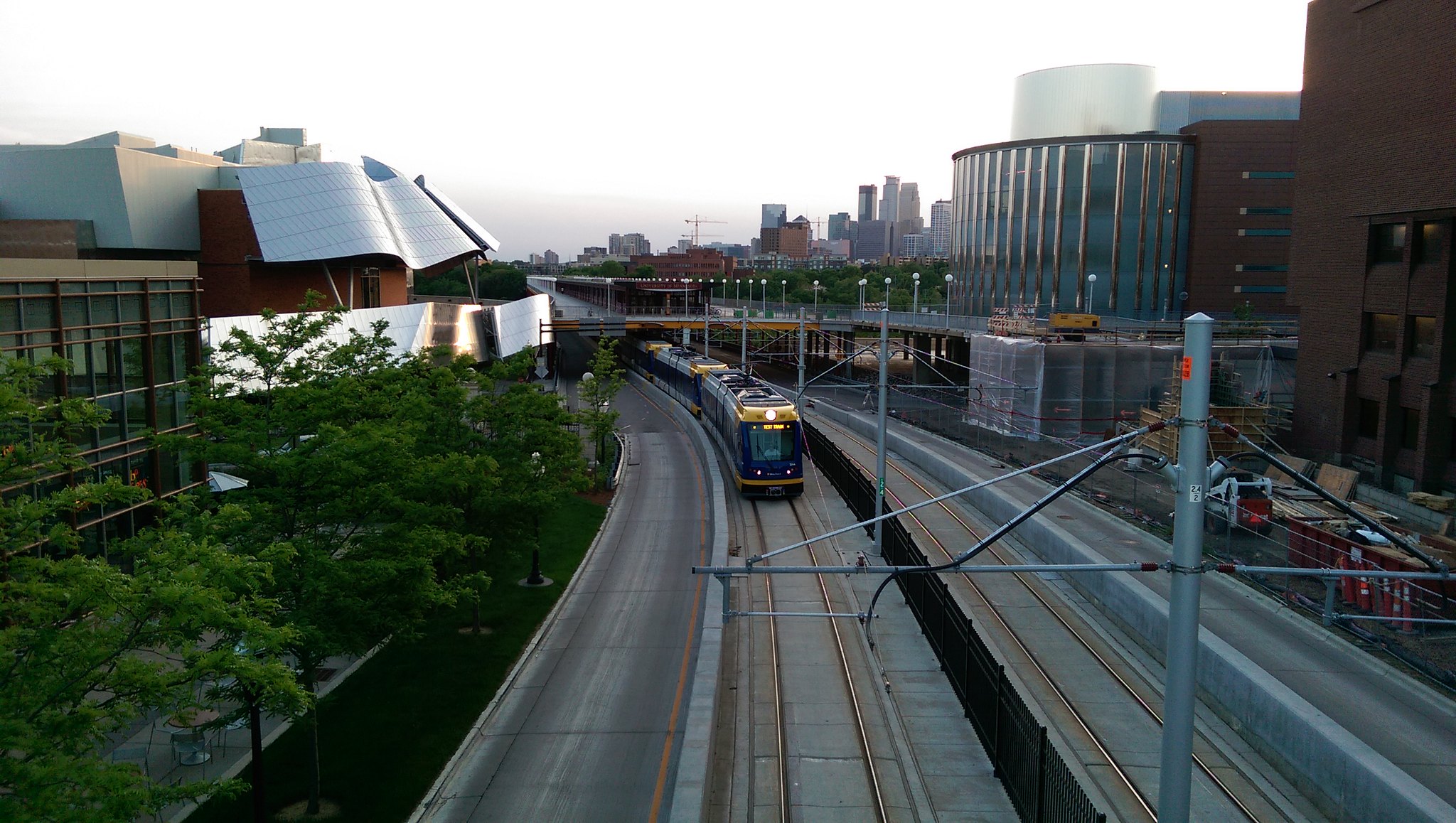The transit agency that provides service in Minneapolis has started shutting down the city's only 24-hour rail line for two hours per night in a move designed to scatter the homeless, but one which has had an impact on working class riders who just want to get home.
Metro Transit scaled back overnight service on its 11-mile Green Line on Monday, forcing hundreds of homeless people off the light rail. The agency will use shuttle buses to replace the train between the central business districts of Minneapolis and St. Paul and through the University of Minnesota every Sunday through Thursday, 2 a.m. to 4 a.m.
"As long as there's homeless in this region, there's going to be homeless people using transit for shelter [but] transit is not a shelter," Metro Transit General Manager Wes Kooistra told the Minneapolis Star Tribune. "It's not equipped, we don't have restrooms, we don't have running water, we don't offer fundamental services people need."
The Green Line opened in June, 2014 with an expectation that it would handle 41,000 riders on the average weekday by 2030 — but in October, 2015, the line was already handling 1.3 million passengers a month (though some of that came from football fans). Last year, the line was averaging 42,500 per weekday, according to Metro.
The transit line is clearly a crucial causeway for workers, families, students, as well as the homeless especially during the Twin Cities's notorious cold snaps.
Police counted a high of 431 homeless people on Jan. 23 on trains and in stations — and estimated between 180 and 275 people per night used trains between Union Depot in St. Paul and Target Field in Minneapolis on the Green Line and to the Mall of America on the Blue Line. Metro Transit believed that about 75 homeless people would be using the trains overnight in August.
Homeless people often use trains because they don't like the shelter system. A study by Wilder Research found that 62 percent of the city's homeless avoided a shelter — and a late-night train ride is more attractive than the street.
When the service cuts kicked in on Monday, some homeless passengers chose to wait at the Union Depot station for two hours until another train came at 4 am.
"Now I'll have to find a bench to sleep on," Kimberly Meurtha, who was evicted from her St. Paul apartment in January, told the Star Tribune. "If it's chilly out I'll want to come on the train."
Social services advocates have asked Metro Transit to reconsider the cuts and complained they were only "moving people around" and not solving the crisis.
“It’s an insult that you’re bringing us something to rubber stamp once the decision has been made. Clearly, you have not included the most-impacted people … who have the most to lose in this process," warned Metric Giles, director of the St. Paul housing advocacy group the Community Stabilization Project, at a community meeting in April.






